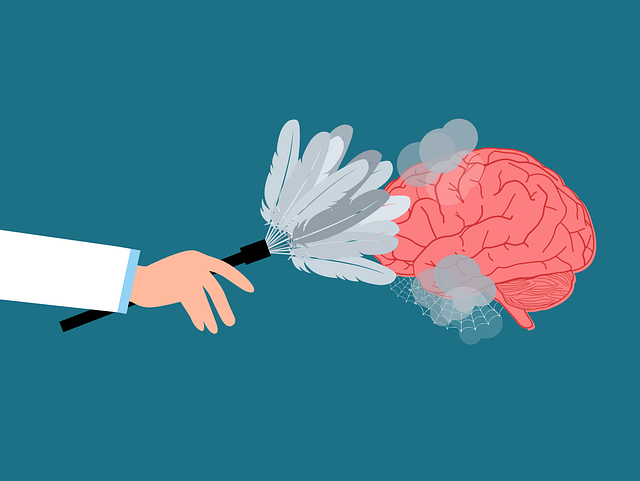Chronic stress can cause significant health issues, but Parker Acceptance and Commitment Therapy (ACT) offers a proven solution. ACT promotes self-awareness, mindfulness, and psychological flexibility to help individuals manage stressors resiliently. By accepting negative emotions, practicing mindfulness, and aligning actions with personal values, ACT enhances mental wellness through techniques like meditation, journaling, emotional intelligence development, and self-care routines. This therapy also includes burnout prevention for healthcare providers and mood management strategies, ultimately fostering resilience and improving overall well-being.
Stress reduction is a vital aspect of leading a healthy, balanced life. In this article, we explore various methods to mitigate stress, focusing on the profound impact it has on our well-being. We delve into Parker Acceptance and Commitment Therapy (ACT), a holistic approach that helps individuals accept and manage stress. Furthermore, practical daily strategies are discussed, offering actionable steps for effective stress management. By understanding stress and employing these techniques, folks can navigate life’s challenges with resilience and grace.
- Understanding Stress and Its Impact
- Parker Acceptance and Commitment Therapy (ACT): A Holistic Approach to Stress Reduction
- Practical Strategies for Daily Stress Management
Understanding Stress and Its Impact

Stress is a natural response to various life challenges and demands, but when it becomes chronic, it can significantly impact our overall well-being. Understanding the sources and effects of stress is the first step toward effective management. Chronic stress has been linked to numerous physical and mental health issues, affecting everything from our cardiovascular system to cognitive functions. It can lead to heightened anxiety, depression, sleep disturbances, and even weaken our immune system.
A growing body of research highlights the effectiveness of evidence-based therapies like Acceptance and Commitment Therapy (ACT), which emphasizes self-awareness exercises and mindfulness practices. By fostering a deeper understanding of one’s thoughts and emotions, ACT enables individuals to develop psychological flexibility, helping them navigate challenging situations with greater resilience. This therapy also incorporates skills for conflict resolution techniques, promoting healthier ways of responding to stressors in daily life, thereby enhancing mental wellness coaching programs development.
Parker Acceptance and Commitment Therapy (ACT): A Holistic Approach to Stress Reduction

Parker Acceptance and Commitment Therapy (ACT) offers a holistic approach to stress reduction, focusing on accepting negative emotions rather than trying to avoid or suppress them. This therapy encourages individuals to cultivate mindfulness—the practice of being fully present in the moment—to gain a deeper understanding of their thoughts and feelings without judgment. By embracing this awareness, ACT enables people to align their actions with personal values, fostering a sense of purpose and meaning.
This method goes beyond traditional coping strategies by promoting self-care routine development for better mental health. It teaches individuals to engage in activities that bring them joy and fulfillment while also helping with burnout prevention strategies for healthcare providers, who often face high stress levels. Additionally, ACT aids in mood management by teaching people to accept difficult emotions as temporary and impermanent, allowing them to respond to challenges with greater flexibility and resilience.
Practical Strategies for Daily Stress Management

Managing daily stress effectively is a skill that can be cultivated through practical strategies. One evidence-based approach, Parker Acceptance and Commitment Therapy (ACT), emphasizes acceptance, mindfulness, and values-driven action. By learning to observe thoughts and emotions without judgment, individuals can reduce the impact of stressful situations. This therapy encourages self-Awareness Exercises, such as meditation or journaling, to better understand triggers and develop emotional intelligence.
Additionally, ACT promotes defining personal values and committing to actions that align with them. This inner Strength Development helps build resilience in the face of stress. Simple practices like deep breathing exercises, regular physical activity, and setting realistic goals can significantly enhance one’s ability to manage stress. These strategies not only provide immediate relief but also foster a sense of control and well-being over time.
In understanding the profound impact of stress on our lives, it’s clear that implementing effective reduction methods is essential. The article has explored various approaches, from cognitive therapy like Parker Acceptance and Commitment Therapy (ACT), to practical daily strategies. By embracing these holistic techniques and adopting a proactive mindset, individuals can navigate life’s challenges with greater resilience and overall well-being. Remember, managing stress is not just a luxury but a necessity for fostering a healthier, happier existence.









